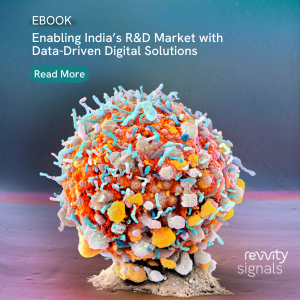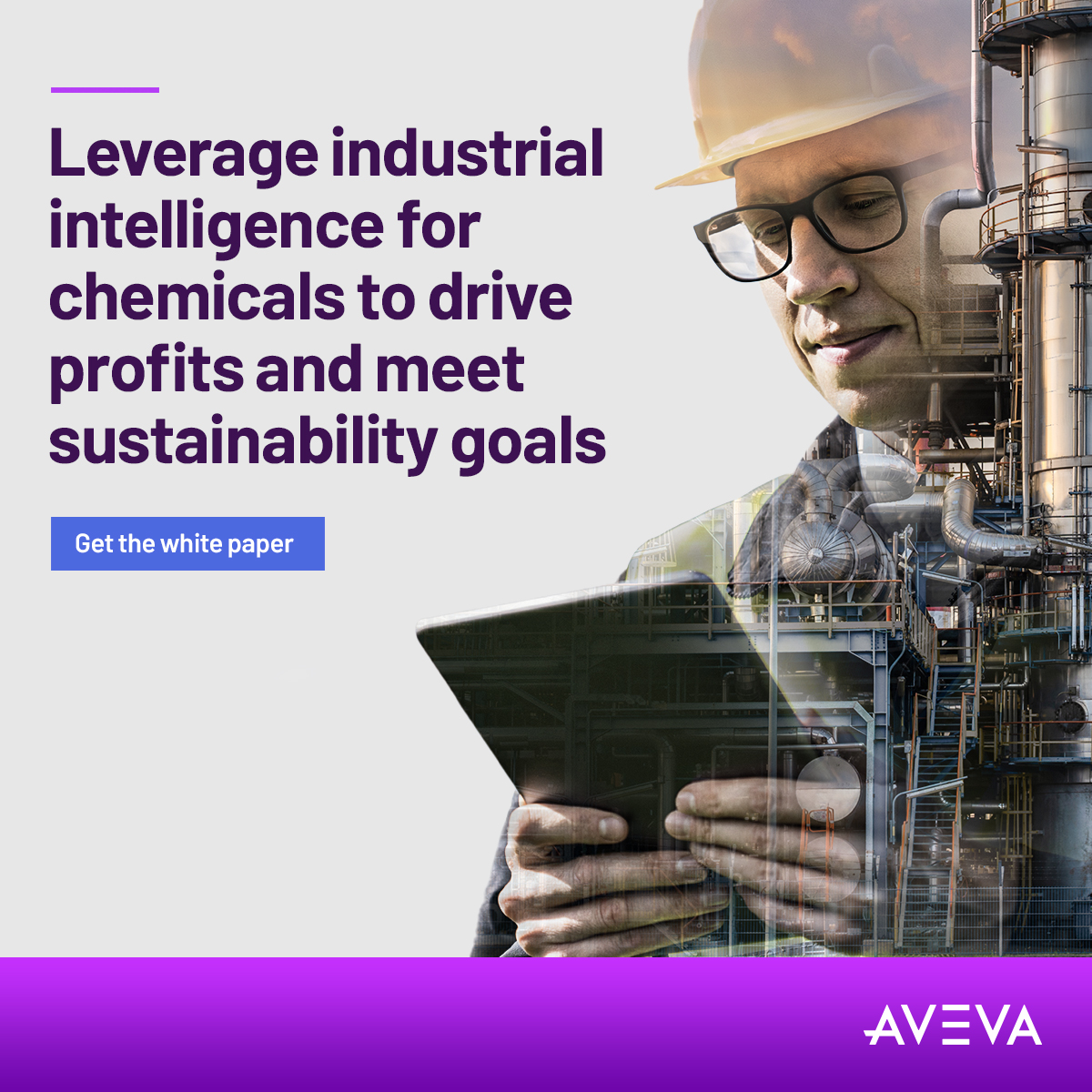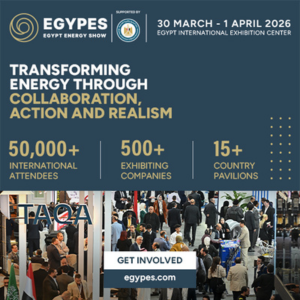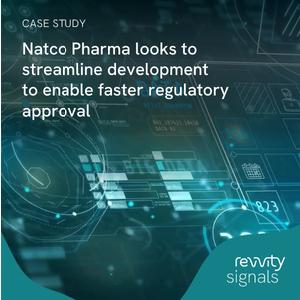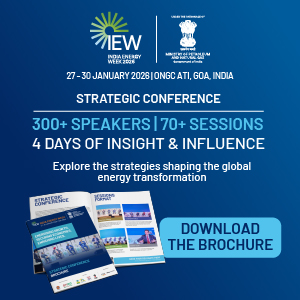Gallery
March 30, 2024
We offer integrated approach for digital transformation of the manufacturing industry: K. V. Siva Rama Brahmam, MD & CEO, Jaaji Technologies
We offer integrated approach for digital transformation of the manufacturing industry
March 30, 2024
Our Capex will go over Rs. 2,500 crore in the next 5 years: Dr. B. S. Negi, Managing Director, Gasonet and Chairman, Resonance Energy
Our Capex will go over 2,500 crore in the next 5 years
March 28, 2024
Focusing on HCNG, electrolyser, sodium-ion battery, energy efficiency and integrated biorefinery: Vipul Kumar Maheshwari, Executive Director - R&D, HPCL
Focussing on HCNG, Electrolyser, Sodium-ion Battery, Energy Efficiency and Integrated Biorefinery
March 28, 2024
We can only be a self-reliant nation with 'Make in India' energy: Siddharth R. Mayur, Founder & Managing Director, h2e Power Systems
We can only be a self-reliant nation with 'Make in India' energy
March 28, 2024
We have plans to manufacture AEM and SOEC electrolysers in India: Dhiman Roy, CEO, GreenH Electrolysis
We have plans to manufacture AEM and SOEC electrolysers in India
March 28, 2024
Hydrogen, energy transition and semicon is our future focus area: Shabareesh Nair, Director, Technical Marketing - Asia, Tubacex Group
Hydrogen, Energy Transition and Semicon is our future focus area
March 28, 2024
We are committed to invest Rs. 1,000 crore on expansion in India between 2025-28: Shital Khot, Chairman & Managing Director, SNF Flopam India
We are committed to invest Rs.1, 000 Cr on expansion in India between 2025-28
February 20, 2024
We expect to invest and expand further in this decade in India: Mitsuo Ohya, President, Toray Industries, Inc.
In an exclusive interview with Pravin Prashant, Executive Editor, Indian Chemical News, Mitsuo Ohya, President, Toray Industries, Inc. talks about achievements in the last 98 years, global business sentiments, success mantra for continuous innovation, strategy to grow India market, future plans, role of Toray in hydrogen ecosystem, and development on AP-G 2025.
Toray will celebrate its 100th Anniversary in 2026. Would you list ten achievements which were truly transformational?
It would be immodest to list ten achievements but I will try to share some successes from the past decade. First and foremost is the fact that we are closing in on a 100 years-reflects long term success which can only be made possible by our employees, serving and retired, and without them we couldn't do anything. This would not be possible with the one constant through the last 98 years - Toray's corporate philosophy which has not changed from day 1 and guides us through our purpose and the reason for being.
Secondly, without great customers, we wouldn't exist! What pleases me is that we have been selectively expanding our footprints from the Asia Pacific region to the European Union (EU) and North America, and in the past decade, to the Indian subcontinent. In India, in 2012-2023 period, Toray has grown from zero assets to four manufacturing assets (Engineered Plastics Compounding, Polypropylene spun-bound, Air Filter, and Airbag Cushion) and several hundred employees operating across India. We expect to invest and expand further in this decade in India. Favourable tail winds of India's 7% GDP growth, higher consumption, favourable demographics portend an attractive macro-economic environment for Toray in India.
Current business sentiments globally with respect to the company's targeted industry verticals?
The world is experiencing a tough situation with wars and political uncertainty. Hence today's business sentiment is cautious optimism. We can hope for the best while preparing for the worst.
Thanks to the tagline - Innovation by Chemistry, the company has come out with many high quality products and superior services in its different divisions - Fibers and Textiles, Performance Chemicals, Carbon Fiber Composite Materials, Environment and Engineering, and Life Science. What's the success mantra for doing continuous innovation?
People! Our greatest assets are our people. Each and every one of the 48,000 employees. Our management is centred on the employee. Our employees drive new product innovation through close contact with customers and the sales team. Our R&D people are located across the world in our businesses, laboratories, technical centres, and even in universities. For example, we have one scientist conducting water research in India at IIT Madras.
How important is India as a market and where does it stand in terms of the global scheme of things? What's the strategy to grow the Indian market and new products which you are targeting in future?
Toray is a maker of premier, advanced raw materials not finished products. Hence our strategy leans heavily on Business to Business rather than Business to Consumer approach. Because of its size, population, institutions and global leadership, India is an important market for Toray and a very important market for the future. Many of Toray's raw materials go into high tech product offerings like aerospace, automotive, batteries, water and air purifiers, fast fashion industries etc. with higher function and quality.
How does Toray ensure safety and environmental sustainability in its operations? What's your future plan for all your operations?
Toray is a chemical manufacturer. Safety is our first and primary goal. For all employees, and for all our diverse products. Because of a multitude of products, it would be difficult to have a one-size-fits-all answer to your question. Each product falls under its own category of industry quality, safety, and efficacy standards, product stewardship and perhaps, compliance. We adhere to comply with best of breed local and global quality and environmental policies.
Globally, Hydrogen has a great future due to its sustainability factor. The role Toray will play in the hydrogen ecosystem both as a solution provider and as a co-partner? How do you look at the India market from the hydrogen ecosystem perspective?
India, a large country, is experiencing continued economic growth and is expected to continue increasing its energy consumption in the future, and it already has the third largest total (not per capita) amount of CO2 emissions in the world after China and the United States. Therefore, we believe that the hydrogen ecosystem in India is particularly important and that a very large market can be expected. Toray intends to cooperate and contribute from various angles to realize a hydrogen society in India.
The Group announced AP-G 2025 with value creation as the theme. What is the development on this front?
Toray uses strategic pricing as a centre pillar of value creation. Strategic pricing implies best pricing keeping in mind supply-demand balance and competitive intensity while adding value to our customer. AP-G-2025, incorporates this theme, to give Toray revenue, margin, operational excellence and customer satisfaction targets till 2025 which are on their way to being achieved.
February 05, 2024
We are working towards becoming a leading player in Specialty Chemical segment: Navanit Narayan, CEO, Haldia Petrochemicals Ltd.
In an exclusive interview with Pravin Prashant, Executive Editor, Indian Chemical News, Navanit Narayan, Whole Time Director and Chief Executive Officer, Haldia Petrochemicals Ltd. talks about petrochemicals market, policy measures, challenges, specialty chemicals, market share increase, Capex investment, R&D, automation, Net carbon zero, and CSR plans.
How do you see the Indian Petrochemicals market in 2024?
While remaining cautious, I see, Petrochemicals industry delivering a comparatively better performance in 2024 on account of gradual softening of feedstock prices and global demand-supply outlook. After three years of successive large capacity additions exceeding demand growth, 2024 is the first year when project demand growth exceeds capacity growth. To that extent, there would be an improvement in business sentiments globally.
In the domestic market, we have seen robust performance in terms of demand, which is further likely to continue in 2024. We expect gradual easing of interest rates, which are likely to further drive consumer demand.
However, there is still a large capacity overhang which needs to be absorbed in global supply-demand balance. Margins are likely to remain subdued till it is fully accommodated either through demand growth and/or closure of inefficient plants. There is also the risk of geopolitical issues jeopardising Petrochemicals business through extreme volatility in feedstock prices.
Major challenges faced by the Indian Petrochemicals sector and the suggested solutions?
In 2023, India was the brightest spot on the global Petrochemicals scene and thus had been on the radar of all major global producers to place their surplus products. Many of these players in the US and Middle East have significant feedstock cost advantage which provides them additional strength to compete with domestic players in terms of product pricing. Cheaper imports from these regions adversely impacted the pricing sentiment and margins of Indian players, which are also reflected clearly in their financial reports.
India is not endowed with large hydrocarbon resources and thus has heavy dependence on crude and its derivatives to meet the feedstock requirements of Petrochemicals. Considering that the industry supports large scale value creations and direct/indirect employment creation.
It is pertinent to provide a policy framework to incentivise growth of petrochemicals in India. Feedstock cost disadvantages need to be compensated through adequate duty protections and government incentives, failing which it would be difficult for industry to sustain business and invest in new capacity creations. In this context, we also need to protect industry interests in various FTAs or CEPA (Comprehensive Economic Partnership Agreements) agreements being entered as in some cases it can lower the competitive strength of Indian producers.
Policy measures which will help make India self-reliant in Petrochemicals?
India is dependent on imports for almost most of the product segments. Apart from capital intensity and feedstock availability, restrictive availability of technology is another major challenge in achieving self-reliance. To make the country self-reliant, we need to encourage investment by Indian and global players directly or through JVs and need to promote early adoption of new technologies which are specifically suited to Indian conditions like new thermal crude to chemical technologies.
Some of the potential policy push helpful to achieve self-sufficiency goals can be presented as: Ensuring stable policy framework for long period – e.g. Guaranteeing duty protection for fixed number of years; Reducing customs duty on feedstock Naphtha used by Indian producers; Declaring Income Tax Holiday/PLI for Petrochemicals; Waiver of GST/CGST on project procurements to minimize capital investment; Simplifying statutory clearance processes; Facilitating/developing large industrial tracts for promoting investment; and
Specialty Chemicals contributed Rs. 999 crore revenue in FY23. HPL has been exploring the possibility of becoming a leader in the niche segment of Specialty Chemicals. What's your strategy to make this happen?
We are working in a very focused manner to become a leading player in Specialty Chemical segments and results would be visible in the next 12-18 months. In FY 2023-24, we expect revenue to remain largely unchanged.
What is HPL’s refining/processing capacity per annum and what is your share nationally in the Indian Petrochemicals market? How do you plan to increase market share?
Our capacity is 700,000 TPA of Ethylene. We produce about 1.5+ million TPA of Polymers and Chemicals and command 8-9% of polymer market share in India. We are focusing on diversifying the product basket in medium terms and becoming the market leader in those segments. We are also working on a long-term plan to improve our market share in terms of Ethylene capacity.
What is HPL’s Capex for FY 2023-24? Projects where you are investing?
We are currently undertaking an investment of about Rs. 3,000 crore in an Integrated Phenol/Acetone Plant.
HPL is setting up the first on-purpose Propylene plant in India based on Olefin Conversion Technology (OCT) and the largest Phenol plant in India at Haldia with a capacity of 300 KTPA Phenol and 185 KTPA Acetone becoming India's first integrated player in the Phenolics chain. Completion and Capex investment in these projects?
We are planning to commission the project in end 2025 or early 2026 and investment is approximately Rs. 3,000 crore.
What is the latest development on the R&D front at HPL?
HPL’s in-house application research activities in polymers are focussed at developing Polypropylene products for growth sectors like automotives and appliances. HPL also has collaborations in research for value addition in existing and future chemical products from its C3 and C6 streams.
HPL’s automation and digital roadmap for new and existing facilities?
Our vision for digital transformation is to build an ecosystem of trusted business stakeholders both internal and external which is agile, innovative and shifts business decisions from reactive to proactive, to predictive, and ideally to automated prescriptive.
Our digital transformation journey is people centric with digitized and optimized processes as the baseline. The integrated and collaborative digital platform will enable people with right cutting edge tools, tailored to their environment and with effective digital transformation objectives encouraging a digital culture. The integrated digital environment of having a 360-a degree view of the organization across all value chains will propel the teams to seek innovation and agility across the organization.
New key technology interventions as follows: Blockchain Technology on Ethereum/MCUBE platform deployment through Electronic Proof of Delivery E-POD solution; Advanced video analytics deployment through Jarvis CCTV Solution; IIOT sensor based predictive analytics deployment for Asset Monitoring through Machine Doctor Solution; and ISO Certification. We are an ISO 27001-2022 certified organization which signifies a strong and governance structure of information security towards digital transformation.
What sustainable measure HPL has adopted towards carbon neutrality? When are you planning to achieve Net Carbon Zero?
Following sustainable measures are adopted by HPL towards carbon neutrality: Use of Renewable Energy: Installation of 1 MWp solar power plant in township (December 21); Rainwater harvesting: Usage of more than 5.5 Lakh m3 of rainwater (FY 2022-23), thereby conserved the natural resources (fresh water); Development of Green Belt: Planted 7,100 casuarina saplings during February - March 23. Planned to plant another 5,000 saplings by December 23. There are a total 1.25 Lacs of trees in our greenbelt; and Clean Technology: Implementation of Pipe Coal Conveyor to transport coal from port to plant to replace transfer thru trucks.
The company is planning to utilize plastic waste? HPL plans in this direction?
HPL at present complies with the statutory requirements in plastics recycling as brand owners in collaboration with third party agencies who have necessary infrastructure for utilizing plastic wastes.
HPL acquired US based Lummus Technology at an enterprise value of US $2.73 billion from McDermott International in 2020. How are you planning to leverage it going forward?
Acquisition of Lummus has provided a unique platform of licensor-operator collaboration having potential to benefit both the parties. HPL is leveraging Lummus expertise to improve operating performance in terms of reliability, throughput improvement and yield besides ensuring quick troubleshooting of the plant when need arises.
With the commissioning of new plants, the overall chemical business portfolio is expected to increase by an additional Rs. 5,000 crore. So what's your future revenue expectations and its timeline?
We expect this incremental revenue potential to be realized by FY27. We are planning commissioning of the specialty LMW Polymer project in current financials which will increase the topline of the Specialty Chemical business by about Rs. 100 crore per annum.
What is your CSR plan for FY 2023-24?
The CSR plan for FY 2023-24 of HPL is focused on seven verticals in line with being along the SDGs and India’s position in strengthening SDG Goals. The verticals are: Education; Healthcare; Infrastructure; Sustainability; Women Empowerment and Equal status; Sports; and Environment.
HPL’s three primary thrust area verticals are promoting higher education including infrastructure and healthcare. Under the education category, the company has taken up of supporting in building of a new school in a remote village by an Education Trust, infrastructural development projects for schools, building of smart classrooms, upgradation, and construction of science laboratories for schools which were spread in and around Purba Midnapore District.
For healthcare, medical equipment donation to the Haldia sub divisional hospital, PG hospital Kolkata, and many more hospitals across West Bengal along with donation of ambulances. HPL is involved in bringing sports activities into the social fabric which is the need of the hour. With the present living style and the societal needs, HPL is getting self defence training imparted to school children of many Schools at Haldia to develop sports as an essential part of development of mind and body.
Also mangrove forestation in Sundarbans, women empowerment program through Jute product making training are the major projects considered this year to reiterate HPL’s commitment towards the society and the environment.
January 28, 2024
We are targeting US $100 mn market in the next 5 years: Dr. Minshad Ansari, Founder & CEO, Bionema
In an exclusive interview with Pravin Prashant, Executive Editor, Indian Chemical News, Dr. Minshad Ansari, Founder & CEO, Bionema Ltd. shares insights about the company, current operations, latest initiatives, funding, range of products, India plans, US and EU plans, and future revenue streams
Please tell us about your company?
Bionema is dedicated for biocontrol, crop protection, stimulation for crop enhancement, and biofertilizer for crop nutrition. More importantly, we focus on formulation and delivery systems. Having spent around 15 years in academic research in India, Belgium and the UK, I founded Bionema in 2021. While we have been working on a few interesting projects, I must say that the entrepreneurial journey from academia to industry is a very classical transformation.
Bionema has recently received grant funding from Innovate UK and that helped us to develop a groundbreaking technology called IncapsuleX, the encapsulation formulation or microbial microencapsulation, essentially a microbial formulation for pest and disease control.
You have spent around 15 years in Belgium, India, and the UK so what portion of your research happened in these countries?
My earlier study in the area was during my post-graduation from Aligarh Muslim University. Following that I joined ICRISAT for a few years before moving to Belgium in 1998 until 2005 for higher studies as a part of the PhD programme. It was followed by a one year post-doctoral fellowship as I moved to the UK in 2005 until 2012 with another seven and half years of research at Swansea University.
When I began my journey in academia my idea about entrepreneurship was limited. The initial phase was very difficult and painful but years of research and dedication at Bionema resulted in development and commercialization of a number of technologies for the UK and other markets. In the early days, we commercialized three products and those were for pest management. Those were patented and later acquired by Syngenta in 2021 and that provided a boost to the company as well as moral support. Around the same time we were recognized as one of the Top 20 leading companies in the world. After that acquisition, we started working on a number of other technologies which we have in the pipeline.
Biopesticides have been criticized in many countries, probably just because the farmers and growers are not satisfied with the efficacy which has to do with two things, one is the innovation and the secondly the formulation. Unfortunately, these two things are very much limited in the market. So we have a few products in the market and we will have a few innovations in the market as well. So again my focus is very much on developing innovative products and formulations. The microencapsulation project was funded by Innovate UK and it really helped us to work on this ground breaking technology. The product is not yet in the market, but very soon it will be available in the UK and then EU. Later, we plan to go to the North American market as well.
Apart from the funding by Innovate UK and acquisition of a few of your products, what is the investment that you have made in this company?
Raising investment is a tough journey. We got seed rounds raised in 2018 and 2019 worth £680,000. During that time I realized that most of the investors will ask about the turnover and for technology companies it is very difficult to raise any turnover when they are in the early days of development. But I think I have learned a lot and we are utilizing the same, in this case to now raising £5 million in Series A, expected to get closed before Christmas 2023. We have a number of investors who are interested, particularly looking for the Syngenta deal where we have demonstrated commercialization and innovation and secondly, they are seeing a very powerful range of products that are coming out in pipelines.
We will have another round of £10 million which will then bring us to the other markets. The first round will help us to accelerate the market where we will start selling products in the UK market and then we will be registering products in the UK, Canada, EU, and Mexico. The registration will take at least three to four years before the product will come in the market.
Can you please explain the USP of RootVita?
RootVita is part of our 10 years’ research and it falls into both the categories of biostimulants and biofertilizers. It is a unique blend of biofertilizers, PGPR (Plant Growth Promoting Rhizobacteria), essential nutrients, prebiotics, and vitamins. The product will be used in the turfgrass industry, horticulture, and forestry in the UK.
The benefit of the product is that it can fix the nitrogen and phosphorus besides silica and contributes micro nutrients, improving soil health. Therefore, it is an all in one basket compared to some products in the market which are individually applied for nitrogen fixing, phosphorus alkalization, and silica. All these micronutrients and nutrients are very important for the plants to release their stress and make them healthier, providing strength to fight pests.
What are the other products that you are planning to launch in future?
We have a number of products, especially the two upcoming products from the microbial range. It’s called the Metarhizium, Meta 101, a bioinsecticide designed for controlling soil pests, currently getting registered in Canada. There is another product, Meta 101 SC formulation that is also getting registered in Canada and will follow. And the third one is the microencapsulation technology platform which is not a product but that will actually include formulating a number of microbials with better efficacy. And that's where farmers and growers basically will get better value for money.
We also have one product, a bioinsecticide in the US market and that is in collaboration with a company. We also have four bio fertilizer products launched in the UK, which are BioNfix-PA, BioNfix-AC, BioNfix-AV, and BioNfix-AL. There are seven other products in biostimulants. Those are already launched in the UK and now we are preparing for registration in the EU and the same product will register in Canada, US, and Latin countries. We also have registered some bio-based polymers which help boost the efficacy of existing or new pesticides.
When do you feel these products will get commercialized?
The seven biostimulants and four biofertilizers have been already launched in the UK market. The Meta 101, which is a bioinsecticide microbial product is going to come out sometime in early 2026 in the Canadian market followed by the US, and later in Australia, New Zealand, EU, and the UK.
How big is the market for these products and when are you planning to launch?
When we talk about biological agriculture which includes biocontrol, it is about US $6.6 billion worth market size. The second category where RootVita comes in is biostimulants with market size of US $3.5 billion and biofertilizer market is US $3.1 billion. In total, we are looking for US $14.2 billion which is mainly covering US, EU, Canada, and Latin countries. Out of all these countries, Brazil has basically simplified the regulatory system and is now leading in this segment.
Out of US $14 billion you talked about, what would be your market share?
If Bionema continues accelerating everything as per plan, we will be looking for the US $100 million market in the next five years.
What about India plans?
Recently, we have opened a subsidiary in India, but I believe that the Indian biopesticide market is not mature enough compared to the EU and elsewhere. We are looking for another 10 years before we can do anything in the Indian market. There are one or two products about which we are talking about to a few very visible players in India and those can be marketed once a deal is reached The problem is that these products are costly as they are being manufactured in the UK or in the EU. That makes these very difficult to sell in developing countries whether in Africa or India. Therefore, those products need to be produced in India if we want to be competitive in the market.
Which AgroChem companies in India are you in talks for these products?
We have discussed with many players in India and manufacturing might be possible if the deal goes through. They have already tested it for cotton bollworm, all soft bodied insects or other threats. This is a sucrose based product originated from coconut and has been registered as a bio-insecticide in the US. We expect that product registration in India will not take a lot of time because it is already approved and certified as organic bio-insecticide as well. It is a very good product which will fill the gaps in the Indian market.
What regulatory obstacles or hurdles do you think are for the Indian market?
All these products including bioinsecticides, biopesticides or biofungicides are regulated in India by the Bureau of Indian Standards (BIS) New Delhi and Faridabad. We have seen that if the product is already registered in the US and EU, there is always an edge and it makes things a little bit easier, however, it has to go through full registration.
We are talking to our partners to register the products in India. The deals are getting finalized and hopefully by March 2024, we might launch the product. If not then it might take another 12 months for the regulatory process.
Which product are you initially planning to launch in the Indian market?
It is an organic product that has an active ingredient derived from coconut. It has been registered as an insecticide in the EU and designed for killing the soft bodied insects. There are some pesticides and insecticide there in the market but most of them have become resistant. So this is another opportunity for the biocontrol industry to come up with a solution which can not only be used as an alternative but can fill the gaps in the market.
How will farmers benefit from your product?
Firstly, the product has a two year shelf life so that they can store and use it for multiple seasons. Secondly, if the product is produced in India, it will not be costly, so we will still be competitive. Thirdly, they can immediately control their plant diseases wherever they are finding their insecticide is not working or has become resistant. As we have already done trials in the UK, EU, Canada, and Mexico, we are very confident that the product is already working. There are hundreds of publications already available to demonstrate that the product works.
What's your plan for 2024?
We are signing some sort of deals with multinationals for US markets and we are going to soon launch in the EU. The decision will start from March 2024. So a lot of preparation is going on for launching this product. Initially we will be doing it in a few states in the US but later on we will have a deal with those companies that are very interested to launch or market this product there. Bionema's business model is to invent the product and make it more interesting to multinationals. We take all the risk from that point to sell and supply to their market, helping them on the technical side because that's where our strength is, whereas their strength is very much on the commercial side.
What is the current status of your revenue stream?
We are still in millions but we have built a product worth US $50 million IP patent and that is how it is attracting investors otherwise it is very difficult to get investment. Unless you are not very clear about the revenue, getting investment is not a problem, but if you are not then it is difficult.
What would be your annual revenue during 2024?
We are looking at making close to US $4 million based on EU and US market foray. If we launch into Mexico and Brazil markets, we will exceed a little bit more. That's the kind of optimistic figures we are looking for.












